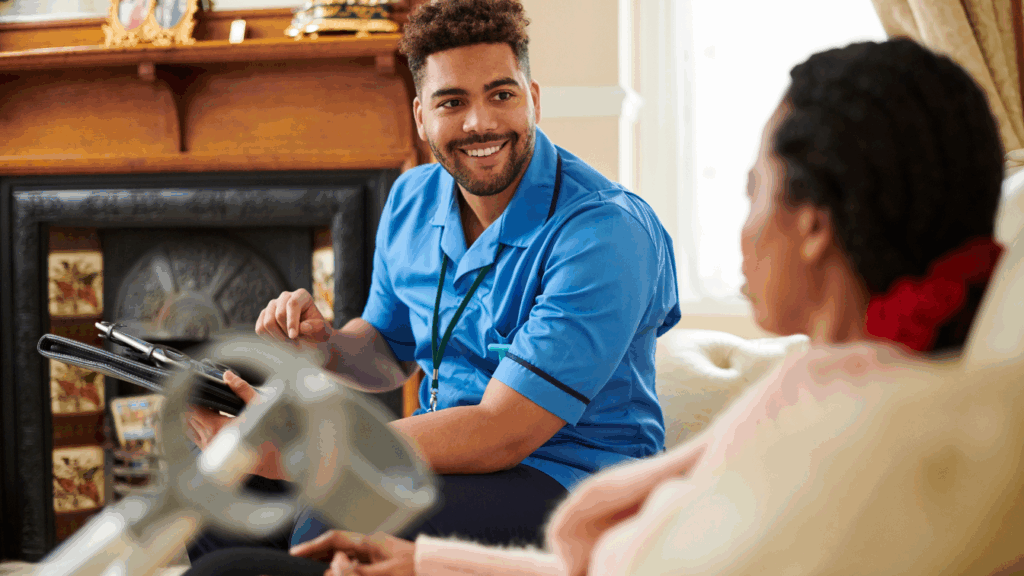Whether you want to work in healthcare, community support, mental health, or social services, the transferable skills you’ll learn as a Health and Social Care student will help to shape your confidence, professionalism, and future career options.
Here are eight key skills you’ll master during your course, and why employers love them:

1. Communication
In Health and Social Care, communication is everything. You’ll learn how to speak clearly, listen with empathy, and adapt your style to suit different people and situations. Employers value this skill because good communication helps build trust, prevent misunderstandings, and improves the quality of care.
2. Empathy and emotional intelligence
During your course, you’ll learn how to understand people’s emotions, respond sensitively, and support individuals during challenging moments. Employers value this because it leads to better relationships, improved wellbeing, and higher-quality care.
3. Problem-Solving
Health and Social Care often involves thinking on your feet. You’ll learn how to assess situations, stay calm, and make decisions that put safety and dignity first. Employers look for people who can handle challenges confidently and respond quickly when things don’t go to plan.
4. Teamwork and professional collaboration
Whether you’re working with nurses, social workers, teachers, or families, you need to be part of a team. Your course will help you build strong teamwork skills and understand the role each professional plays in someone’s care. This makes you an asset in busy environments where cooperation is key.
5. Organisation and record-keeping
In many roles, accurate notes and good organisation are just as important as hands-on support. You’ll learn how to manage your time, keep clear records, and follow procedures. Employers value these skills because they help keep services safe, efficient, and legally compliant.
6. Safeguarding awareness
A core part of any Health and Social Care course is recognising when someone is at risk and knowing the correct steps to take. Employers prioritise this skill because safeguarding keeps people safe and ensures organisations meet legal responsibilities. You will find knowledge of the importance of safeguarding will be a common topic during job applications and interviews.
7. Professional boundaries
Learning where to draw the line in professional relationships is essential. You’ll be taught how to support others while keeping interactions safe, respectful, and appropriate. Employers value this because it protects both staff and the people they care for.
8. Digital and technical skills
Modern care settings rely on digital tools, from electronic records to online communication. You may also find yourself supporting a client who has their own assistive technological aids around their house like iPads, therapy animals and electronic windows. During your course, you’ll develop the confidence to use these systems effectively. As digital skills are becoming more necessary in the sector, employers are looking for a staff team who can work efficiently with technology, keep accurate digital records and understand these new and emerging types of assistive aids.
Ready to Start Your Journey?
Our Health and Social Care courses give you the practical experience and confidence you need to step into the world of care. These skills not only make you employable, but they also help you make a positive impact on people’s lives every day.
If you’re passionate about helping others, this could be the perfect path for you!


